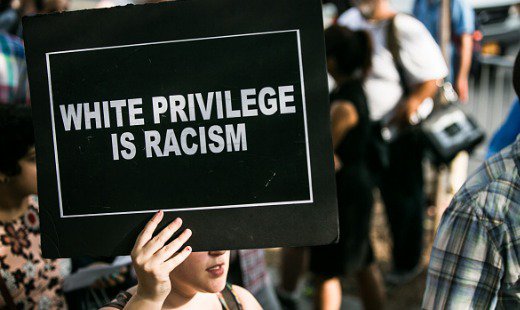Why you may be a Racist—Even Though you Don’t Mean to Be
The good news is there is something you can do about it.
—
A lot of stuff about race in the news recently. It feels like it’s all over the place.
- With the nomination of Sen. Jeff Sessions to Attorney General, for instance, there has been a great hew and cry from the Left, claiming that he’s a racist.
- There’s a move afoot in Arizona to “prohibit school courses and events that promote ethnic studies and social justice,” a move viewed widely by critics as an attack on people of color.
- Over the weekend there was a dust-up between the incoming president and civil rights legend, Rep. John Lewis, in which the President-Elect tweeted that John Lewis is “all talk, talk, talk — no action or results,” and that his district “is in horrible shape and falling apart (not to mention crime infested).”
- On Monday, as I write this, I scroll through my social media feeds to find them full of quotes from Dr. Martin Luther King Jr., celebrating his birthday by remembering his legacy in the fight against racism.
- Tomorrow, we’re holding a press conference at the church where I serve to draw attention to yet another police shooting of an African-American man.
So, with all that stuff churning, I figure it’s probably time once again to have a heart-to-heart about what racism is, and what it isn’t.
Now, right away someone is going to say that I’m reading racism into otherwise innocent occurrences.
- Sen. Jeff Sessions isn’t racist; he said so himself.
- Doing away with classes and events “that promote ethnic studies and social justice” isn’t racism; if anything it’s trying to take the divisive issue of race out of the schools.
- Calling John Lewis all talk, and suggesting his district is just shy of being the seventh circle of hell has nothing to do with race.
- Sure Martin Luther King Jr. was a great man, but if he were alive he wouldn’t give the time of day to #BlackLivesMatter.
- People who aren’t doing anything wrong don’t have anything to worry about from the police.
A common theme that pops up in any contested conversation about race is the issue of intention. The argument is that if people don’t actually intend to say or do bigoted things, they aren’t racist. That argument is a seemingly bulletproof defense too, since how can we ever see inside people’s hearts to know their intentions?
Distilled to its essence, the claim amounts to this: I don’t feel racist; I didn’t mean to be racist; therefore, I’m not a racist.
 Unfortunately, that misses the point. Racism doesn’t depend on feeling or intention. Racism is acting or failing to act (pro tip: speech is an action) in ways that perpetuate systems of power by the majority, which continually denies protection to and produces disparate outcomes for people of color. Understood this way, saying that you’re not racist because you don’t feel racist or don’t intend to be racist is like saying that you can’t be a drunk driver because you don’t feel drunk and you didn’t mean to be driving while drunk.
Unfortunately, that misses the point. Racism doesn’t depend on feeling or intention. Racism is acting or failing to act (pro tip: speech is an action) in ways that perpetuate systems of power by the majority, which continually denies protection to and produces disparate outcomes for people of color. Understood this way, saying that you’re not racist because you don’t feel racist or don’t intend to be racist is like saying that you can’t be a drunk driver because you don’t feel drunk and you didn’t mean to be driving while drunk.
| [R]acism is like a strong current that carries everyone in the stream in a certain direction, and the only way not to be racist . . . is to consciously swim against the current. |
Being a bigot may assume a certain amount of intention, but being a racist does not. Racism is a set of power arrangements we participate in; it’s like the air we breathe and the water we drink. Put another way, racism is like a strong current that carries everyone in the stream in a certain direction, and the only way not to be racist (or better yet, to be anti-racist) is to consciously swim against the current.
- Having black friends doesn’t save you from being a racist.
- Refusing to use racial epithets doesn’t save you from being a racist.
- Liking Barack Obama or LeBron James doesn’t save you from being a racist.
- You don’t get a pass on racism just because you made your ten-year-old watch Roots. (It’s a start, but not sufficient.)
- Posting Martin Luther King Jr. memes on your Facebook wall on MLK day doesn’t get your anti-racism ticket punched.
In order to be headed in the right direction, we must repeatedly say “no” to a culture that disadvantages people of color when it comes to things like housing, employment, education, healthcare, voting rights, and political access. Being anti-racist means holding the justice and enforcement communities accountable for a default position that constantly produces disparities in police violence, arrests, and incarceration.
The bad news is, you might be a racist even though you don’t mean to be. The good news is, there’s something you can do about it.
—
—
Photo credit: Getty Images
Source: Why you may be a Racist—Even Though you Don’t Mean to Be –





